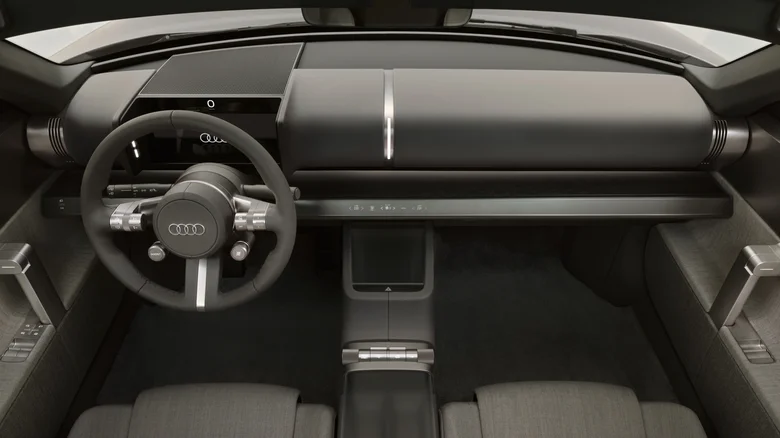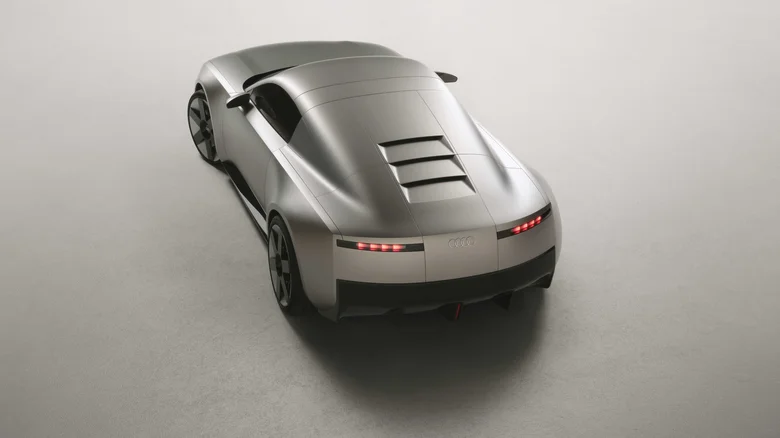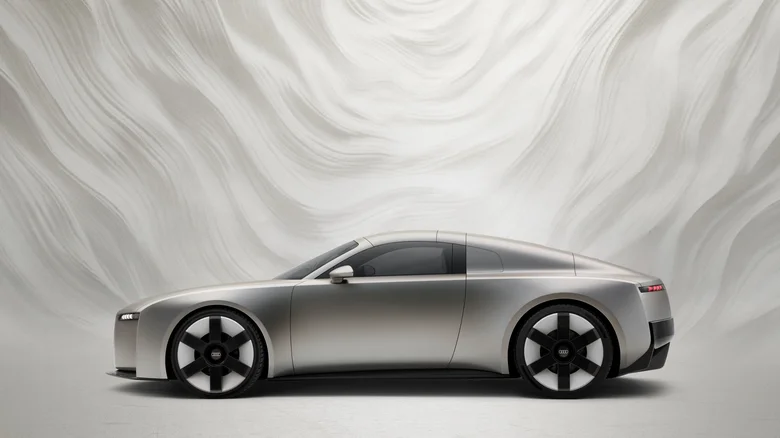Audi’s latest concept car, the Concept C, offers a restrained yet intriguing look at where the German automaker may be heading next. Described by the company as a study in “radical simplicity and technical precision,” the two-seater sports coupe strips away the visual clutter that has defined recent Audi models in favor of a purer, more focused design language. While still firmly in the conceptual stage, the Concept C seems to preview a more minimalist, electric future for the brand—and possibly a spiritual successor to the discontinued Audi TT.
Concept cars have long served as testing grounds for new design philosophies and technologies. Since the debut of the 1938 Buick Y-Job, automakers have used such prototypes to gauge public reaction and experiment with ideas too ambitious or unconventional for immediate production. The Concept C follows in that tradition. Audi says its clean, flowing lines draw inspiration from the Auto Union racers of the 1930s, and the resemblance is evident in its balanced proportions and restrained surfaces. Compared with the sharp-edged aggression of current Audi sedans and SUVs, this concept feels calm, confident, and precise.

Underneath, the Concept C is fully electric, though Audi has revealed no specifics about its powertrain or performance. Instead, attention has been placed on the cabin—a space that rethinks Audi’s current approach to interiors. In a departure from the touchscreen-heavy environments dominating modern cars, the Concept C reinstates physical aluminum controls and geometric design cues reminiscent of the original TT. The use of wool upholstery rather than leather emphasizes both sustainability and function, allowing sound and temperature systems to work seamlessly through the material. The interior color scheme, dominated by titanium tones, reinforces the minimalist aesthetic, highlighting form over flash.
Audi has a history of translating concept designs into production vehicles with remarkable fidelity. The 2003 Le Mans Quattro concept became the foundation for the first-generation R8, while the 1995 TT concept evolved almost unchanged into the production TT. Even the 2003 Pikes Peak concept materialized as the Q7 SUV. That track record suggests the Concept C might not remain a showpiece for long.

If Audi does bring it to market, the Concept C could mark a deliberate shift away from the aggressive, angular styling of recent years toward something quieter and more refined—an approach that could resonate in an era increasingly dominated by electrification and digital restraint. Rather than shouting for attention, Audi’s future design language, as embodied in the Concept C, appears content to speak with subtle confidence.







